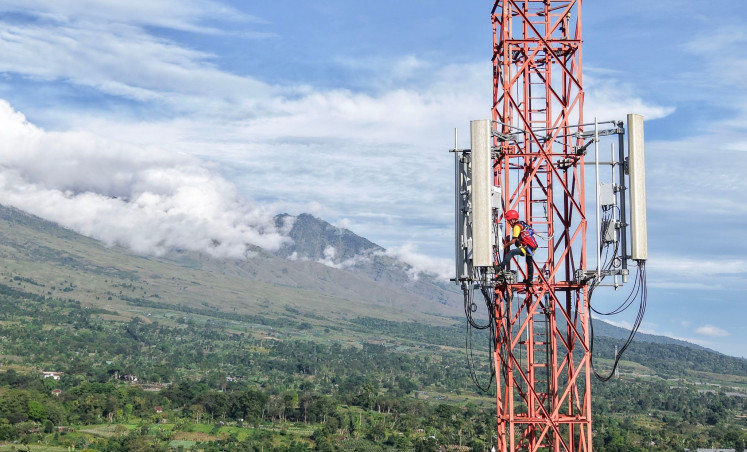Popular Reads
Top Results
Can't find what you're looking for?
View all search resultsPopular Reads
Top Results
Can't find what you're looking for?
View all search resultsSkills, training and education keys to reducing labor abuse abroad
The Panca Karsa Association (PPK) has since long provided legal advocacy for troubled migrant workers from West Nusa Tenggara
Change text size
Gift Premium Articles
to Anyone
T
he Panca Karsa Association (PPK) has since long provided legal advocacy for troubled migrant workers from West Nusa Tenggara. Its executive director Endang Susilawati gave an interview with The Jakarta Post in her office in Mataram recently on increasing violence and criminalization of migrants from the province.
Question: What do you think of main reasons behind the deaths, rapes and rampant violence against migrant workers from West Nusa Tenggara?
Answer: The numerous cases of violence, rape, sexual harassment and deaths of migrant workers in their workplaces abroad have a lot to do with misleading information, poor recruitment systems and lack of training before departure. Too many uneducated people are given empty promises; their documents are falsified and they are unqualified for their jobs
Workers overseas are actually treated as commodities in their labor contracts, including their payments, which are made between Indonesian sponsors and foreign partners.
The presence of middlemen means workers have no bargaining power with their employers. Besides, the agencies which sponsor their recruitment, training and departure have no means to control or monitor conditions in the workplace.
Domestic workers are employed in families, obviously, and so no one is monitoring conditions and sees trouble developing.
Most workers are not trained in self-defense or on what to do if they are in trouble or in dispute with their employers.
Both the government and recruiters should pay less attention to remittances and more to the protection of workers as individual human beings.
How important, do you think, is labor training and education?
The law requires a minimum of 200 hours training for workers before departure but the training is not tightly monitored. The Manpower and Transmigration Ministry and the National Agency for Labor Placement and Protection (BNP2TKI) are the last checkpoint for verification of documents, health and skills before departure, but they allegedly abuse their power [for money] as we see with the departure of unskilled workers with falsified documents.
The government repeatedly threatens to revoke the licenses of unscrupulous labor exporters but actually does nothing.
Authorities have taken no action against foreign brokers who freely recruit workers from remote villages in the province.
What is your comment on the way the government has handled troubled workers?
The government has not been responsive to troubled workers. It only pays serious attention when troubled workers are widely exposed on national and foreign media. We have helped many distressed workers without any help from the government or exposés in the media.
What cases are you handling and what are the problems?
We are providing legal help for six migrant workers sentenced to death in Kuching, Saudi Arabia and China. We have informed the government but they have done nothing. We have asked for financial aid from local government to take relatives to visit the convicted and to seek amnesty but we have not raised enough money.
The presidential task force should work with NGOs to provide legal help for troubled migrants who have no capacity to settle their own cases.
How far has poverty in the province forced people to seek jobs overseas?
West Nusa Tenggara is not a poor province, but the poor are getting poorer because the ineffective administration, poor legal awareness and second-rate education.
The province has plenty of money and is rich in its natural resources, agriculture and tourism, but many people still live in poverty. The province is very rich from gold mining in Sumbawa.
General and special allocations from the state budget and the poverty eradication program do not reach the poor. For instance, the soft loan (KUR) from the government has not reached ex-migrant workers so they have to work as peasants upon arrival home or stay jobless. Many ex-migrant workers are reluctant to take the credit because of its complicated administrative requirements and high interest rate.










